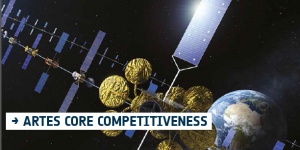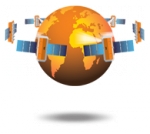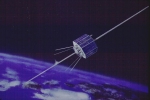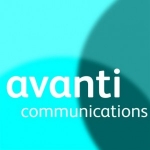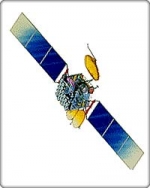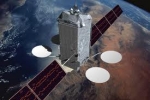Displaying items by tag: telecommunications
ARTES (Advanced Research in Telecommunications Systems)
ARTES is ESA's (European Space Agency) long-running, large-scale program to support the development of advanced satcom products and services. The ARTES program facilitates research and development activities as well as providing a framework for partnerships within the industry with goal of contributing to the development of European and Canadian industries. It assists them in the development of advanced technologies and concepts that form the basis for competitive products and services.
Satellite communications is the economic engine of the space industry, accounting for two thirds of overall space industry revenue. Worldwide data traffic is estimated to grow 800% by 2019, making broadband and data communications services leading growth segments. ESA’s Directorate of Telecommunications and Integrated Applications (TIA) keeps European and Canadian industry at the leading edge of this fiercely competitive global market by nurturing innovation. 1) 2) 3) 4)
Through ESA’s support, industry can pursue research and development that would otherwise not be economically viable. Growing new space-enabled applications and services stimulates the wider economy, creating new business and jobs across almost every sector.
SATTRANS
SATTRANS is an operator and service provider of satellite mobile communications, the producer of additional equipment and accessories for satellite phones, terminals and modems which are operating in the global communication systems like Iridium, Thuraya and Inmarsat.
Offices of the SATTRANS company are located in USA, Russia, Poland, United Arab Emirates, Ukraine. SATTRANS manufacture and deliver additional equipment for satellite phones, which can be used as a communicator in conditions of low visibility of a satellite in offices, cars or ships. Additional equipment is manufactured under the "SATTRANS" registered trademark and complies with international quality standards.
The company's clients are government structures, business corporations and individuals in all fields: transport and energetic, public administration and security, extractive industries and research sector, defence industry and emergency services, medicine, tourism, media, education and culture.
KVH Industries
KVH Industries Inc. is a manufacturer of solutions that provide global high speed Internet, television and voice services via satellite to mobile users at sea, on land, and in the air.
Some of the company's products include the TracPhone satellite communications systems, which allow users to enjoy satellite communications (Internet and Voice over IP telephone services) using KVH's own mini-VSAT Broadband service or other services from providers around the world, and the TracVision satellite TV systems, which bring satellite TV entertainment to vessels and vehicles from around the globe. KVH Industries' satellite products include automatic tracking satellite dishes for recreational vehicle and marine use. The TracVision satellite TV systems are compatible with services such as DirecTV, Bell TV, SKY México, and others.
KVH is also a premier manufacturer of high performance sensors and integrated inertial systems for defense and commercial guidance and stabilization applications. We are based in Middletown, RI, with facilities in Illinois, Denmark, Norway, Singapore and Japan.
O3b (constellation)
The O3b Satellite Constellation is a satellite constellation designed for telecommunications and data backhaul from remote locations.
This new constellation is scheduled for deployment in 2013 and will initially be made up of 8 satellites with plans to extend this to 16.
The constellation is owned and operated by O3b Networks, Ltd.
Elecnor Deimos
Elecnor Deimos is the technology company of Elecnor Group which operates in the Aerospace, Automation and Remote Control, Information Systems, Telecommunication Network, Security and Technological Infrastructure Development.
With more than 500 employees (in 2013), Elecnor Deimos provides technological solutions for the markets Aeronautics, Aerospace, Defense, Transport, Energy and Environment, Telecommunications and Security.
The Company's know how and the high degree of specialization gives Elecnor Deimos the flexibility to meet customer needs. The Company acknowledges plus its quality principles and environmental commitment on sustainable projects development, appoint Elecnor Deimos as a trusted and reliable partner for high-tech projects.
ND SatCom
ND SatCom is a supplier of satellite communication equipment systems and solutions to support customers with critical operations.
ND SatCom is headquartered in the South of Germany, at Immenstaad. With regional sales and support entities in Europe, USA, Middle East and China, ND SatCom is capable of servicing key satellite communication markets.
ND SatCom and Astrium: ND SatCom is an affiliate of Astrium, an EADS company.
OSCAR
OSCAR is an acronym for Orbiting Satellite Carrying Amateur Radio. OSCAR series amateur radio satellites use amateur radio frequency allocations to facilitate communication between amateur radio stations.
These satellites can be used for free by licensed amateur radio operators for voice (FM, SSB) and data communications (AX.25, packet radio,APRS). Currently over 20 fully operational satellites in orbit act as repeaters, linear transponders or store and forward digital relays.
Throughout the years OSCAR satellites have helped make breakthroughs in the science of satellite communications. A few advancements include the launch of the first satellite voice transponder (OSCAR 3) and the development of highly advanced digital "store-and-forward" messaging transponder techniques. To date, over 70 OSCARs have been launched with more to be launched in the future.
Avanti Communications
Avanti Communications sells satellite data communications services to telecoms companies which use them to supply enterprise, institutional and consumer users.
Avanti's first satellite, called HYLAS 1, launched on 26th November 2010 and was a superfast Ka band satellite launched in Europe. Avanti's second satellite, called HYLAS 2, will launch on 2nd August 2012. It will extend Avanti's coverage to Africa, the Caucuses and the Middle East. HYLAS 3 will also serve Africa in 2015.
Boeing 601 satellite
The Boeing 601 satellite is a body-stabilized geostationary satellite.
The Boeing 601 was introduced in 1987 to meet anticipated requirements for high-power, multiple-payload satellites for such applications as direct television broadcasting to small receiving antennas, very small aperture terminals for private business networks, and mobile communications. The basic configuration features as many as 48 transponders and offers up to 4,800 watts.
A more powerful version, the Boeing 601HP, made its debut in 1995. The HP versions can carry payloads twice as powerful as the classic Boeing 601 models, through such innovations as gallium arsenide solar cells, advanced battery technology, and an optional xenon ion propulsion system. The 601HP features as many as 60 transponders and provides up to 10,000 watts.
All Boeing 601 spacecraft use the same basic bus design, enabling Boeing to realize efficiencies gained by production volume, tooling investments and quantity buys.
Boeing 702 satellite
The Boeing 702 satellite is a family of geostationnary satellites designed and manufactured by the company Boeing.
Its design requirements include lower cost and high reliability. It offers a broad spectrum of modularity. A primary example is payload/bus integration. After the payload is tailored to customer specifications, the payload module mounts to the common bus module at only four locations and with only six electrical connectors. This design simplicity confers advantages. First, nonrecurring program costs are reduced, because the bus does not need to be changed for every payload, and payloads can be freely tailored without affecting the bus. Second, the design permits faster parallel bus and payload processing. This leads to the third advantage: a short production schedule.
Further efficiency derives from the 702's advanced xenon ion propulsion system (XIPS), which was pioneered by Boeing. XIPS is 10 times more efficient than conventional liquid fuel systems. Four 25-cm thrusters provide economical stationkeeping, needing only 5 kg of fuel per year - a fraction of what bipropellant or arcjet systems consume. Using XIPS for final orbit insertion conserves more mass as compared to using an on-board liquid apogee engine. Customers can apply the weight savings to increase the revenue-generating payload, to prolong service life, or to change to a less expensive launch vehicle (when cost is based on satellite mass).

